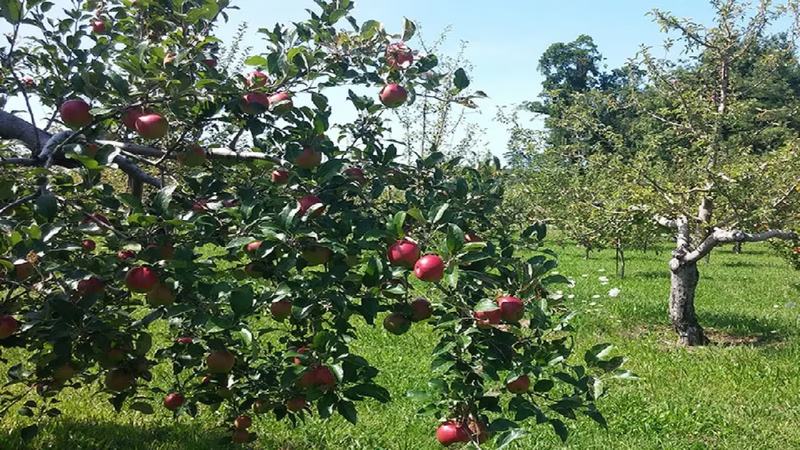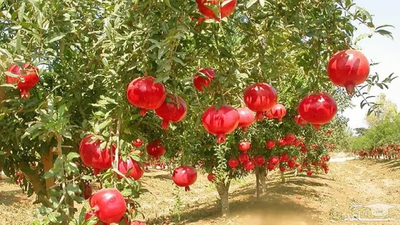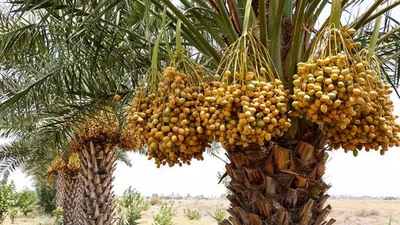
Marketing strategies for orchard sales in Middle East trade.
To attract foreign buyers to orchards, emphasis on providing comprehensive and attractive information about orchards, using online and offline marketing methods, and communicating with related networks can be very effective. This process includes all the activities that are done to attract and encourage foreign buyers and renters to own and use orchards . If you want to rent your orchard to foreign buyers, marketing and selling the orchard for rent can include advertising and providing comprehensive information about the orchard, determining the price and terms of the lease, negotiating and facilitating the contract and lease process.
By communicating with real estate agencies and foreign consultants who specialize in selling and renting various properties to foreign buyers, you can access the network of foreign buyers. Provide complete and attractive information about your orchards to agencies so that they can convey this information to their buyers. Participation in exhibitions and events related to horticulture, fruit growing and tourism industry can be a good opportunity to introduce fruit gardens to foreign buyers. At these events, you can attract foreign visitors to your gardens and provide them with complete information about the garden's features and benefits.
Advertising in foreign media, such as local magazines and newspapers or horticulture and tourism websites, can help you reach a foreign audience. Print and online advertisements with attractive content and attractive images can attract the attention of foreign buyers. Connecting with local agents and similar businesses in foreign countries can help you gain access to a network of foreign buyers. These local agents can act as intermediaries between you and foreign buyers and help in the marketing and sales process.
If your orchards are located in areas of tourist attraction, you can offer related tourism services such as orchard tours, horticulture training, local experiences, etc. This possibility attracts foreign buyers and increases your income. Connecting with embassies, organizations and associations related to the fruit growing and horticulture industry in different countries can help you gain access to a network of foreign buyers. These networks can provide you with useful information and contacts for selling and renting orchards to foreign buyers.
Laws related to selling gardens to foreigners in Middle Eastern countries may vary between countries. In some countries, it is possible to allow the sale of gardens to foreigners with certain conditions and restrictions, while in others it is prohibited or more restricted. Some countries in the Middle East, such as the United Arab Emirates , Qatar, Bahrain , and Oman, have changed their laws in recent years and have limited access to real estate for foreigners. These countries have opened some specific areas for foreign buyers in order to attract foreign investment and move in their real estate market. Instead, some Middle Eastern countries, such as Iran and Iraq, have laws restricting the sale of real estate to foreigners. These countries may impose restrictions such as requiring special permits, financial restrictions and avoiding sales to non-residents.
The marketing process involves the use of various methods and tools to introduce and promote orchards to foreign buyers. This may include building a website, using social media, online and print advertising, visiting trade shows and related events, and working with real estate agents and local agents. In the sales phase, efforts are made to attract and make deals with foreign buyers in order to sell orchards. Selling the garden includes negotiating the price, providing complete information about the garden, providing tours and services related to it, and facilitating the purchase process and ownership transfer.
-

Attracting foreign buyers to orchards requires a strategic approach that combines effective marketing, comprehensive information dissemination, and networking. Key methods include utilizing both online and offline marketing channels, engaging with real estate agencies, and participating in horticultural exhibitions. Providing detailed information about the orchards to potential buyers is crucial for successful transactions. Additionally, advertising in foreign media can enhance visibility among international audiences. Collaborating with local agents in target countries can facilitate access to foreign buyers and streamline the sales process. Offering tourism-related services can further entice buyers by enhancing their experience. It"s important to navigate the varying legal frameworks regarding foreign ownership of orchards in Middle Eastern countries, as regulations differ significantly across the region. Some nations have relaxed restrictions to attract investment, while others maintain stringent laws that may require special permits for foreign buyers.
Overall, a well-rounded marketing strategy that includes building an online presence and leveraging social networks is essential for successfully selling or renting orchards to international clients. "
-

In the arid regions of the Middle East, gardens are strategically designed to optimize limited water resources. Drip irrigation systems are prevalent, allowing for efficient water use by delivering moisture directly to plant roots. Drought-resistant fruits such as pomegranates, dates, and figs are commonly cultivated. Water conservation techniques, including soil coverage with organic materials and composting, help maintain soil moisture and reduce evaporation. Advanced technologies like hydroponics and smart greenhouses further enhance water management and crop yields. The market for garden products in West Asia is influenced by local conditions, laws, and the types of produce grown. High-value crops like saffron and olives can significantly impact a garden"s marketability. Factors such as garden size, geographical location, access to irrigation sources, and proximity to consumer markets play crucial roles in determining value.
Reliable irrigation is essential for successful fruit production in these regions. Additionally, local regulations and economic developments can shape the dynamics of the garden market. "
-

Gardening holds significant cultural value in the Arab and Muslim communities of West Asia, serving as a source of relaxation, physical activity, and social interaction. It is a cherished pastime for retirees, allowing them to cultivate plants while enjoying nature and engaging with others in gardening groups. Beyond personal enjoyment, horticulture plays a crucial role in the region"s economy by providing food and employment opportunities. The Middle East has a long history of agriculture, with traditional practices evolving over thousands of years to optimize crop cultivation. Gardens not only supply essential nutrition but also contribute to economic development through related industries such as food processing and export. Additionally, gardens serve as social spaces for gatherings and celebrations, symbolizing wealth and prosperity in some cultures. Overall, gardening is integral to the lifestyle and economy of West Asia, promoting health, community bonding, and cultural heritage. "
-

The Middle East offers lucrative opportunities for investing in orchards, particularly in countries like Iran, Turkey, Lebanon, Jordan, and Oman. Key factors for successful investment include geographical location, soil quality, reliable irrigation sources, and proximity to consumption markets. Fertile soil with proper drainage and ventilation is essential for fruit cultivation. Diversification of fruit products can mitigate risks associated with market fluctuations and weather conditions. Each country has unique advantages: Iran boasts a variety of fruits such as apples and dates; Turkey is known for its olives and grapes; Lebanon produces cherries and olives; Jordan excels in dates and lemons; while Oman offers diverse fruits like oranges and hazelnuts. Understanding local market demands is crucial for maximizing returns on investment. Additionally, professional management in horticulture practices enhances the success rate of orchard investments. The potential for exporting these fruits further increases the attractiveness of investing in these regions.




